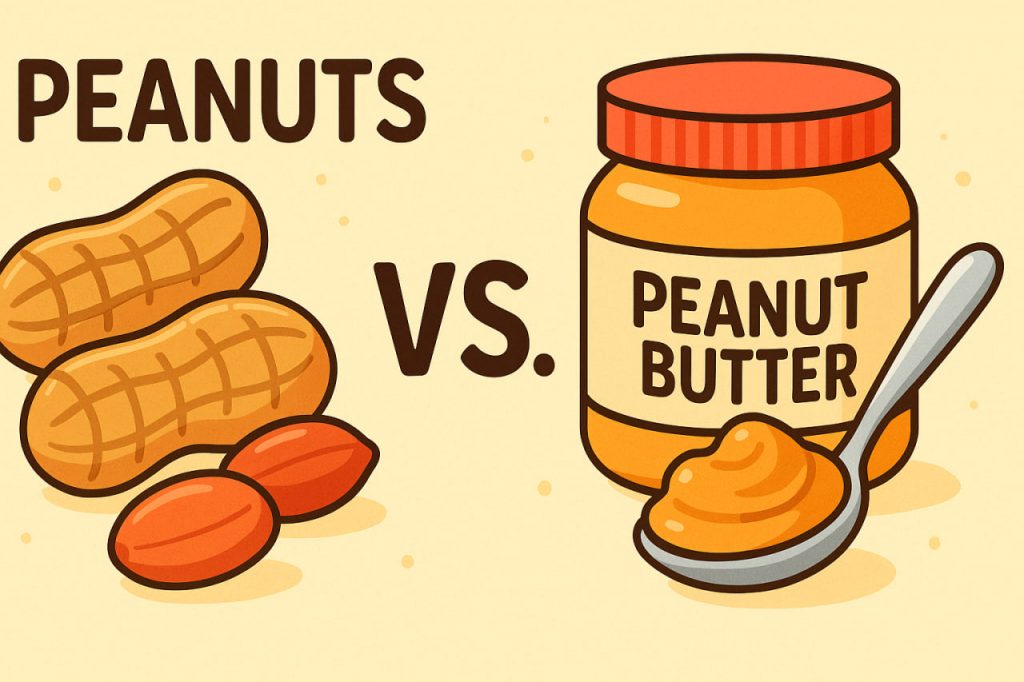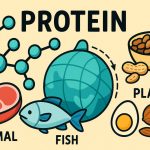Peanuts and peanut butter are both popular foods with rich nutritional profiles, but they are not identical in health benefits. While peanuts are a natural legume eaten roasted, boiled, or raw, peanut butter is a processed spread made primarily from ground peanuts. To determine which is better, one must consider nutrition, processing, convenience, and potential drawbacks.
Nutritional Value of Peanuts
Whole peanuts are nutrient-dense and packed with protein, healthy fats, and fiber. They contain essential vitamins such as vitamin E, niacin, and folate, along with important minerals like magnesium, copper, and phosphorus. Peanuts are also rich in antioxidants, including resveratrol, which may help protect against oxidative stress. Since they are eaten in their natural state (roasted or boiled), they contain minimal additives, making them a pure and unprocessed option.
Nutritional Value of Peanut Butter
Peanut butter retains many of the beneficial nutrients found in peanuts, including protein, healthy fats, and vitamins. However, commercial varieties often include added sugar, salt, and hydrogenated oils, which may reduce its overall health value. Natural peanut butter, made with just peanuts and a bit of salt, is much healthier and almost nutritionally equivalent to whole peanuts.
Satiety and Weight Management
Peanuts, thanks to their fiber and crunch, may promote a stronger feeling of fullness compared to peanut butter. Chewing whole peanuts takes longer, allowing the body more time to recognize satiety signals. Peanut butter, while calorie-dense, is easier to overconsume due to its smooth texture, which may lead to excess calorie intake if portion control is not observed.
Health Benefits and Risks
Both peanuts and peanut butter are associated with heart health benefits, largely due to their monounsaturated fats and plant-based protein. They can reduce the risk of cardiovascular disease when eaten in moderation. However, one must be cautious: peanuts can be contaminated with aflatoxins, toxic compounds produced by molds, though food safety standards minimize this risk. In peanut butter, added sugars and unhealthy fats in some brands may outweigh the benefits.
Which is Better?
If consumed in moderation and without additives, peanuts are slightly better because they are whole, unprocessed, and higher in fiber per serving. However, natural peanut butter is nearly as healthy and provides a convenient source of energy and protein. The best choice depends on lifestyle and goals: peanuts for fiber and satiety, peanut butter for quick energy and convenience.
Conclusion
Both peanuts and peanut butter are nutritious foods that can fit into a balanced diet. Choosing unsalted roasted peanuts or natural peanut butter without additives ensures maximum health benefits. Ultimately, moderation is key, as both are calorie-dense foods that can easily contribute to weight gain if overconsumed.
Interesting Facts
Although both come from the same source, roasted peanuts retain more natural fiber, while peanut butter provides concentrated calories and healthy fats. However, processing can reduce beneficial antioxidants by up to 25%. Research also shows that people who eat unsweetened peanut butter two to three times per week have lower LDL cholesterol levels and a reduced risk of type 2 diabetes. Fun fact: the first modern peanut butter was developed in 1895 by John Harvey Kellogg, originally as a soft protein substitute for people who had trouble chewing meat. Today, it remains one of the most popular plant-based protein foods worldwide.
Glossary
- Protein – essential macronutrient for growth, repair, and energy.
- Monounsaturated fats – healthy fats that support heart health.
- Antioxidants – compounds that protect cells from oxidative stress.
- Aflatoxins – toxic substances from molds that can contaminate peanuts.
- Satiety – the feeling of fullness after eating.


